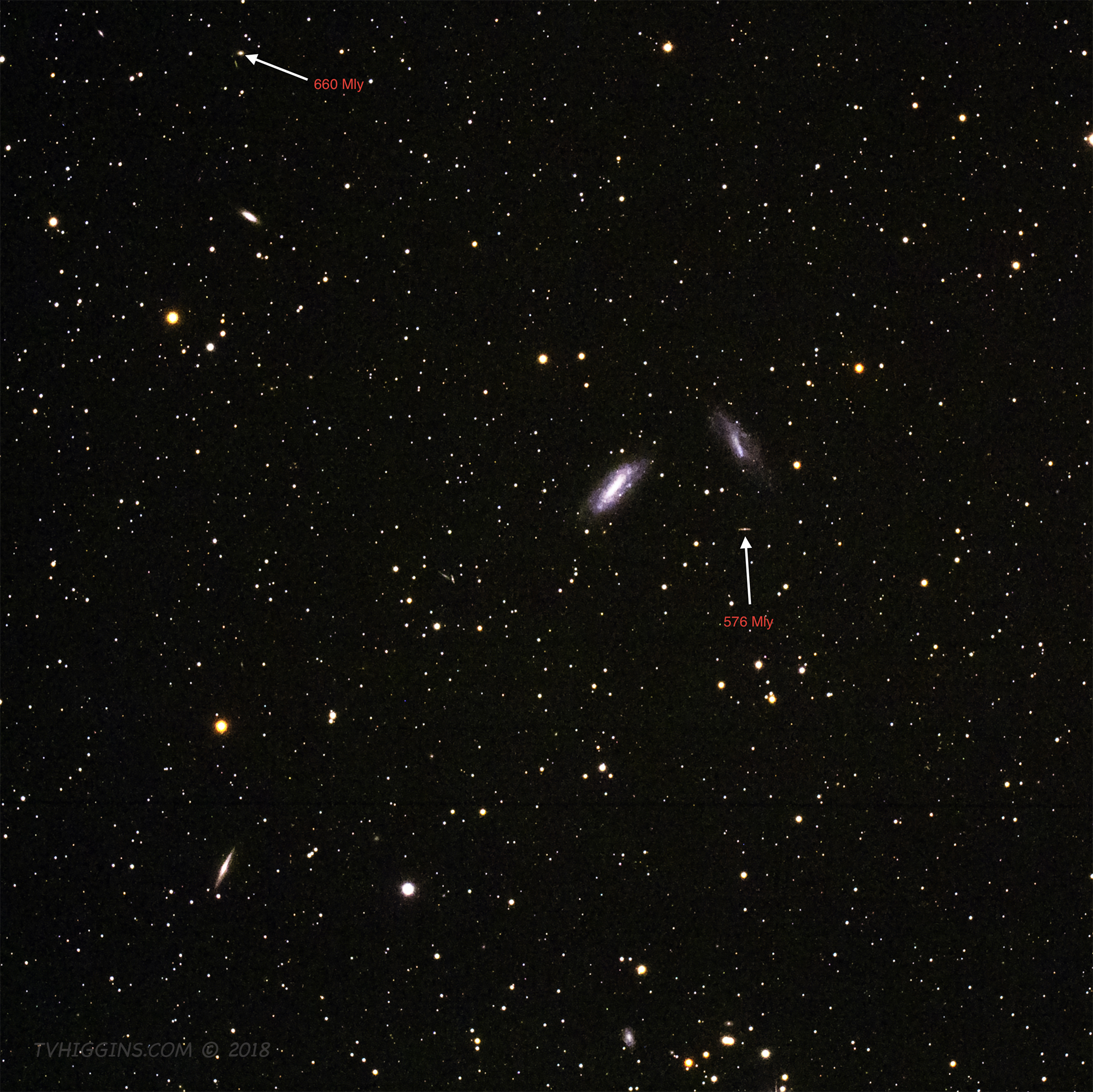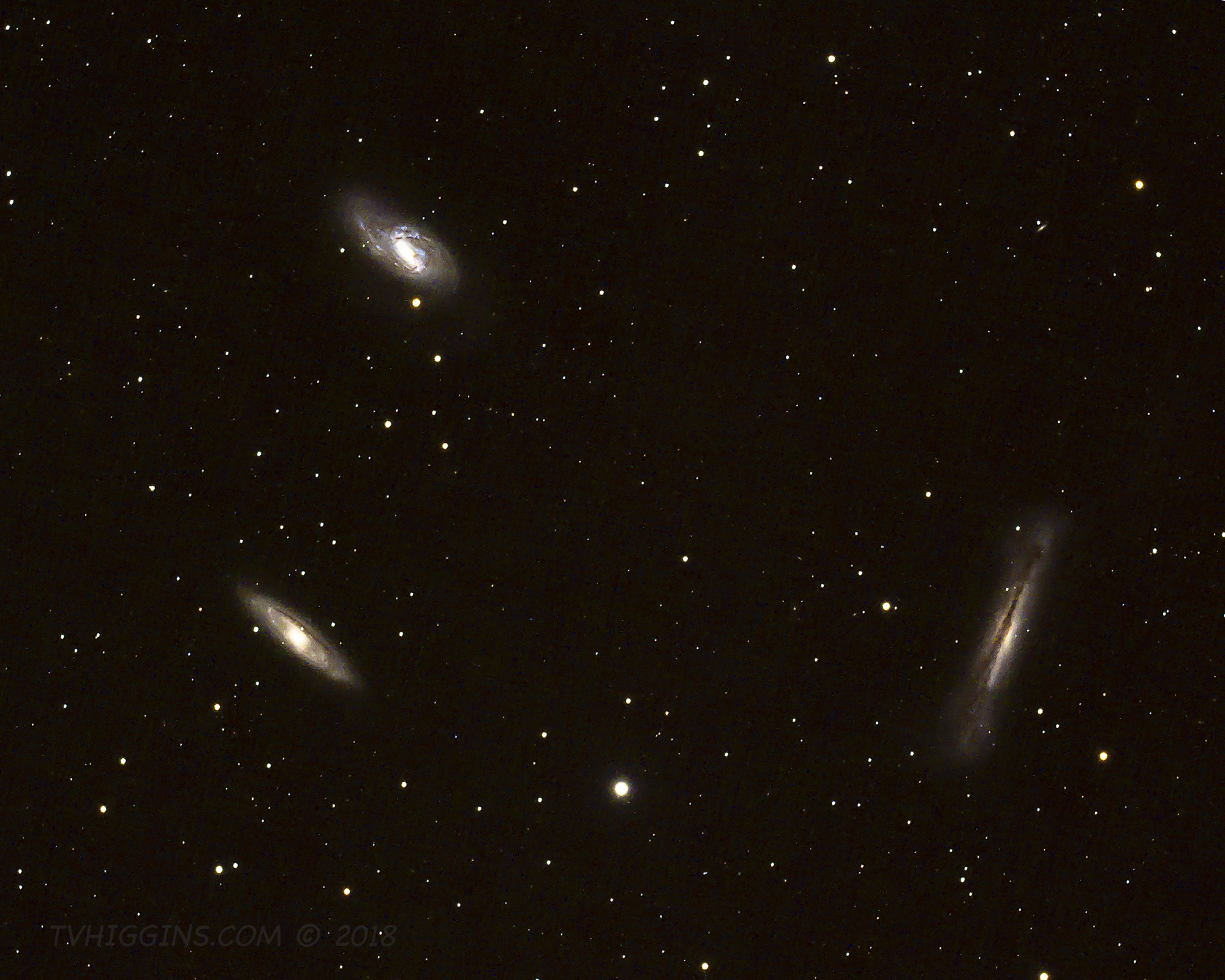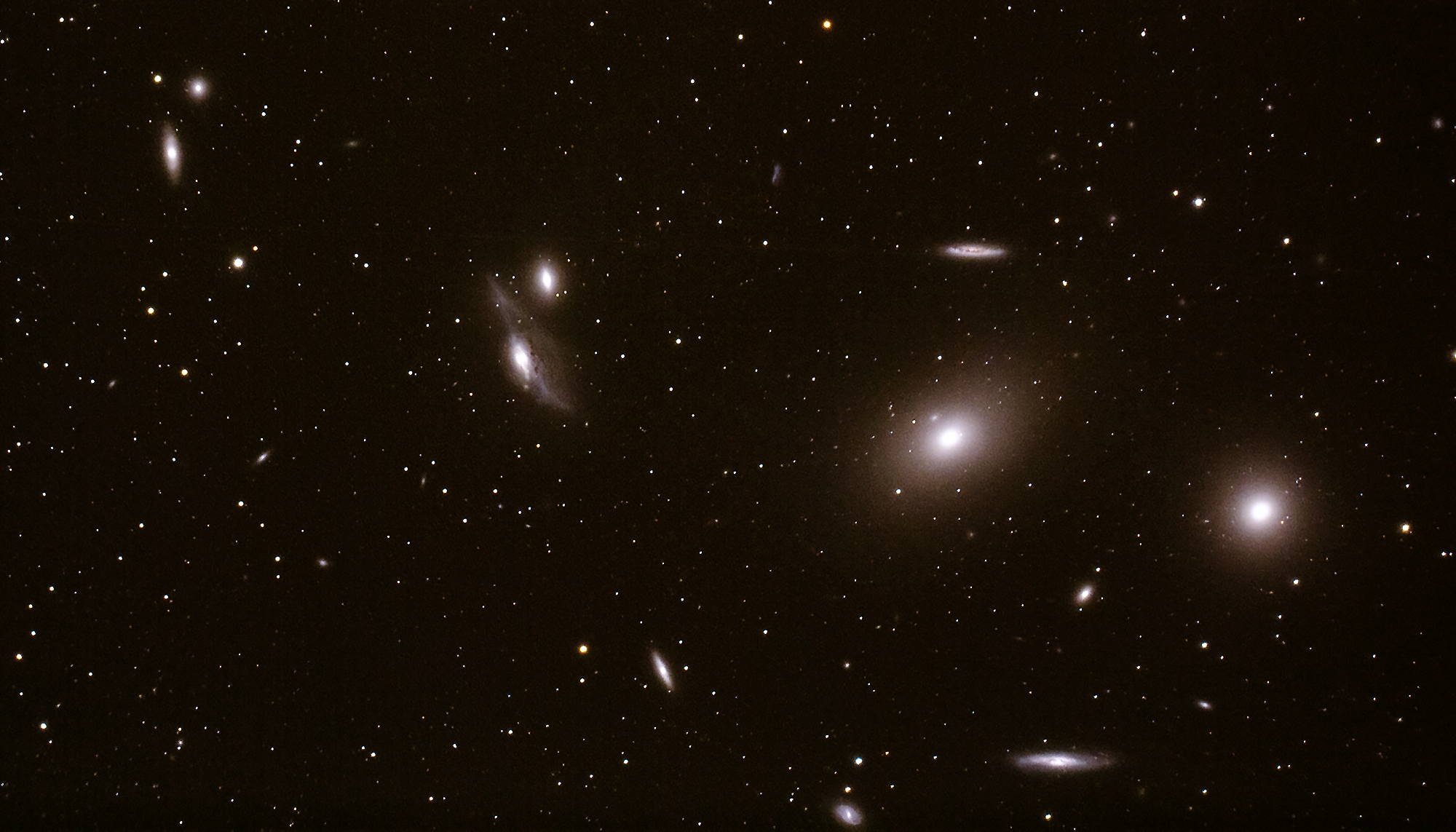Dark Matter, NGC 672 & IC 1727
- Telescope: Stellarvue SVA130T-IS
- Mount: Losmandy G-11 with Gemini 2 controller
- Autoguiding: Yes
- Optical Configuration: 0.72x field flattener & reducer (f/5)
- Camera: Canon 60Da
- Light Frames: 20, 6-min. exposures
- Calibration: None (no darks, no flats, no biases)
- Exposure Time: 120 min. (20 x 6 min.)
- ISO: 800
- Processing: Photoshop CC
- Imaging Location: Sierra Nevada Mountains (Altitude: 8,600 ft)
Around 20 million light-years away in the constellation Triangulum, dark matter could be dominating the behavior of several galaxies. In a 2008 paper, astronomers Zitrin and Brosch observed that NGC 672, IC 1727, and 12 smaller galaxies all seem to be moving together with a long filament of dark matter stretching across 6° of sky, or 1.7 million light-years. NGC 672 and IC 1727 are the two largest galaxies in the above image (left and right, respectively). This filament of dark matter, they believe, also stimulates the nearly simultaneous creation of new stars within the galaxies that are caught in its gravitational grip.
Through the telescope, NGC 672 and IC 1727 can be seen huddled together less than 90,000 light-years apart. At 26 million light-years away, they form a relatively close galactic pair to us. But far more distant galaxies also can be spotted in the image above. Arrows identify two of these remote galaxies and their distances, estimated from their cataloged redshifts.
[For Michael, whose intellect and compassion brightened our lives.]


